WHAT IS THIS WORLD COMING TO?
In the mid-1970s, an exciting new video game captured the nation and ushered in the video game revolution as we know it today. If you were around then, you undoubtedly knew someone who had it hooked up to their TV; or you might have stopped at a bar that had it built into a table so you could play while you had cocktails. There was even a Saturday Night Live skit: a conversation wherein all you saw was the video screen of the game being played out. It was called Pong and it was all the rage. It was like playing ping pong, but on a TV screen! The screen was mostly black (the court) with a dotted line in the middle (the net); the players were represented by thick short lines that they moved back and forth as they lobbed a virtual ball (though it was more like a square). The only other thing on the screen was the score. Aside from the black background, the game was rendered entirely in dazzling white. (The biggest downside was that those stark white Pong images would burn into your television screen, leaving an all too noticeable ghost image of the game while you watched Charlie’s Angels or M*A*S*H.)
A game of Pong in action.
We’ve come a long way with video games since then. Soon came the much more sophisticated Space Invaders, followed by even more impressive games like Galaga and Pac Man in the 1980s. Now gaming is a huge industry unto itself, with realistic renditions of characters in complex environments that make the simplicity of Pong a nostalgic joke. But you shouldn’t laugh too hard, because whatever the most kick-ass video game is that exists today, in a few short years it will seem as quaint and rudimentary as Pong.
So it goes with the acceleration of all technology. Each new technological breakthrough is used to build on the next big breakthrough. These advances happen exponentially — meaning, to put it roughly, that progress that might have taken 100 years in the past will eventually take 10 years; then once that technology builds on and creates even newer technology, what would have taken 10 years is accomplished in one; what used to take a year will take a month; and so on and so on. Think of how the Wright Brothers flew their plane at Kitty Hawk in 1900, preceded in all of history only by a series of false starts; by the 1920s we already had commercial air travel; and by the 1960s we were traveling into space. It’s an evolutionary process that mimics human evolution. In the case of computer technology — specifically artificial intelligence (AI) — it is evolving so rapidly that, before long, it will surpass the human brain and we won’t be able to keep up with it. So what do we do then?
Ray Kurzweil thinks he knows the answer, and it will either blow your mind or make you roll your eyes. Here’s his vision: Consider that, when he was a student at MIT in 1965, the school had exactly one computer, it took up half of the building it was in, and you had to be an engineer to operate it. Now our iPhones are millions of times more powerful than that prototype, it fits into our pockets, and you only need the most minimal brain power to use it. As the new technology builds on the old technology, computer chips get smaller and smaller and smaller, yet hold more and more information. Pretty soon — within his lifetime, Kurzweil expects — they will get as small as blood cells, and indeed we will have these blood cell-sized computers injected into our bodies, monitoring our physical well-being and making necessary corrections. Disease as we know it today will be abolished. So will obesity, alcoholism, and any other detrimental physical ailments you can think of.
But wait, there’s more. In fact, that’s only the beginning. In a twist on the ol’ Man vs. Machine story, Kurzweil sees computers and humans actually merging into one. Within 20 years, we’ll understand how the brain works, and artificial intelligence will learn to think more like humans. Simultaneously, we will be plugging computers into our brains, allowing us to download information as well as store and increase our own memory. Virtual reality, these days used mostly in gaming, will become a commonplace experience; in fact, we’ll spend most of our time there. You’ll be able to choose what environment you’d like to be in and instantly be there. You can even choose to be another person entirely. Over time, we will shed our biological bodies as they become essentially obsolete. Death will be a thing of the past as we acquire immortality. We’ll start linking with each other, becoming a meta-intelligence, interconnecting the entire human race, and sharing our thoughts as one across the globe. From there, we start expanding out into the rest of the universe and connecting with other planets as the world awakens.
So what do you think? Nuts, huh? Wacky. Off the wall. Too “out there.” Not to be taken seriously. Take heed, however, because Kurzweil is quite accustomed to having his predictions dismissed, only to see them come true in due time: Among his more well-known prophecies, he predicted the collapse of the Soviet Union, the rise of the internet, and the exact year that a computer would be able to beat a human in chess. But he’s not coming up with these visions from some supernatural world; it’s borne of his interpretations of hard scientific data and logical next steps.
So who is this Ray Kurzweil guy?
For starters, he is the subject of the documentary Transcendent Man: The Life and Ideas of Ray Kurzweil. He’s an inventor, an entrepreneur, a scientist, a visionary, a lecturer, a salesman, an author, a futurist, and a genius (and, if this part is required to impress you, a millionaire many times over). He has blind followers — literally blind, that is — who are grateful to him for the gift of his invention that allows them to read documents (hard copies, on paper) without the aid of another person. Stevie Wonder had an early prototype of the device when it was brand new and only the rich could afford it; now it’s affordable for the masses and fits in your pocket like a cell phone. He holds approximately 35 patents for this and various other inventions.
Ray Kurzweil is also obsessed with death … or rather, with not dying. He takes 200 pills a day — which he swallows like snacks — to slow down and reverse the aging process; with his vitamin and mineral regimen, he reprogrammed his body to eliminate his Type 2 Diabetic profile. He wants to be immortal, and he is convinced that technology will progress far enough in his own lifetime to get him there (he is 63 right now). And did I mention that he wants to bring his dead father back to life?
The ideas that the documentary tosses around are big and complex and, for most of us, can’t be absorbed entirely during a single viewing using the limited brains we currently possess. It would require reading his book, The Singularity Is Near, to fully grasp the scope and potential of his thoughts (seemingly dozens of definitions of the “singularity” are offered in the film, from mathematical to philosophical — but it’s meant here primarily as a catchword for the time we merge with computers, and change occurs faster than we can currently imagine). The surplus of information thrown about may explain the inclusion of some surprisingly dull sequences — a tour of his Kurzweil’s home and garden, footage of interviewee Hugo de Garis walking through a Hong Kong marketplace apropos of nothing — because it benefits captive audiences in movie theaters who don’t have the luxury of stopping and reviewing the DVD. The film occasionally comes off like an elaborate infomercial for Kurzweil’s inventions and products (particularly the book). But he is fascinating, and this is ultimately about listening to him, agreeing or disagreeing, struggling to comprehend the implications.
Kevin Kelly
The world he opens up — or points to — is one of endless possibility. His vision of the merging of people with computers is bold and even unsettling. The filmmakers consciously sought experts in the field of artificial intelligence to point out where they think Kurzweil is wrong or misguided, and there is no shortage of examples. Even the disagreements, however, might not be what you expect. Kevin Kelly of Wired Magazine pooh-poohs Kurzweil’s notion of reaching the technology that will enable immortality by the year 2040 this way: “Immortality, yes, some day … but not by 2040.” Yeah, I mean, come on! It won’t happen a day earlier than 2100 for sure. I personally am uninterested in immortality, but our longevity is unquestionably going to extend. A thousand years ago, life expectancy was around 25 years. In 1870 it was 37. Now it’s 80 and becoming increasingly common to live to 100. We seem to be well on track to living hundreds of years. Impossible? Don’t forget, that’s what people used to think about living past 40. And about machines that can fly. And about devices that would allow you to clearly speak and listen to someone on the other side of the globe.
But at this juncture in time, the particulars of his predictions — what they are and how quickly they will come true — are almost irrelevant. The larger point for us mere would-be mortals is that technology is going to accelerate at a mind-boggling pace; there is no disagreement from anyone about that. If you thought the pace of change was astonishing in the previous century, our present one is going to shift into hyperdrive.
The idea of man merging with machine is difficult for someone who has gotten ill at the idea of simply having identification chips implanted in our bodies (though we’re already doing that with dogs). Still, it’s appealing to imagine the positive implications of Kurzweil’s ideas. Here are some problems that could be solved that I’ve come up with:
— Since we’ll be spending most of our time in virtual realities, this includes virtual sex. This could curb or eliminate that problem of men’s tendency toward infidelity. Will it really be necessary to have sex with other actual people (besides the one to whom you’ve committed your life) when you can have sex with anyone you want virtually, in a life-like setting? Think of it: you can have orgies without actually cheating. You can stalk a virtual version of a person you’re obsessed with without annoying the actual person (and without getting a restraining order).
— People who need to express the primal urge to wage war can do so in virtual wars instead of real ones – just like in video games, which are already bent almost entirely in the direction of battle.
— Boring office job? Would you work better on the beach? In your virtual reality, you can.
— Being born in the wrong gender won’t matter. Not only will transgender operations be perfected and affordable, but if we actually shed our physical bodies, we’ll be able to literally reinvent ourselves.
— The current financial crisis that the country (and the world) is going through? No problem. Once we have our superbrains attached and we can link them up with the rest of humanity, we’ll be able to figure out exactly the best way to balance the budget.
— We’ll figure out the solutions to climate change and starvation and other such pesky problems.
— Maybe we’ll even know where or if pi ends!
Those are just a few things that come off the top of my head. Kurzweil names examples such as the elimination of disease and the energy problem being solved, as well as relatively smaller scale advances like using information files to create physical objects. But one of the frequent criticisms of Kurzweil is about his benevolence and optimism. He only thinks of the good that advanced AI technology may bring and shies away from the downside of how men will use it for more nefarious purposes (though he says his book dedicates an entire chapter to addressing the destructive implications).
Hugo de Garis
Perhaps it should be mentioned that there is one little problem about the advancement of artificial intelligence that is seriously discussed by some of the scientists who are interviewed: (gulp), you see, when artificial intelligence surpasses human intelligence and gains the capability of repairing itself and inventing better versions of itself without the aid of humans, will the superintelligence eventually realize that humans are inefficient, burdensome, and unnecessary, and decide to wipe us out? It is an archetypal premise of science fiction (2001: A Space Odyssey; I, Robot), but some people are already worrying about it for real. That is the supposed challenge of the 21st century. Please program those bots not to kill us! (Is that to say that we should make sure they don’t think too much like humans?)
Short of the annihilation of humankind, the other nagging question is: how far can you go in melding man with machine and still be human? My own answer is to look at what’s been true for eternity thus far: even with computer-enhanced super-intelligence and rebuilt bodies, there will always be stupidity, greed, love, charity, and the entire spectrum of emotions and foibles. When and if we lose our feelings, that’s when we’ll know we’ve gone too far. And I can’t imagine that there will be no curiosity about unplugging it all and experiencing life unenhanced by technology; even in our society that we think of as fast-paced today, there’s a recurring cry to get back to nature even as we race toward progress. No matter how far technology advances, and whether it’s used for good or ill, I find it comforting to consider this old maxim: nature always wins.
Transcendent Man: The Life and Ideas of Ray Kurzweil
Docurama Films
directed by Barry Ptelomy
DVD | 84 minutes + extras | released on May 24, 2011
available on Amazon, Transcendent Man and Docurama
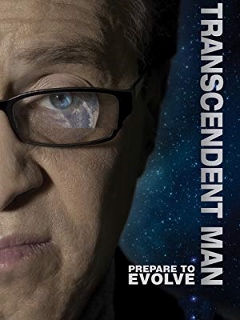

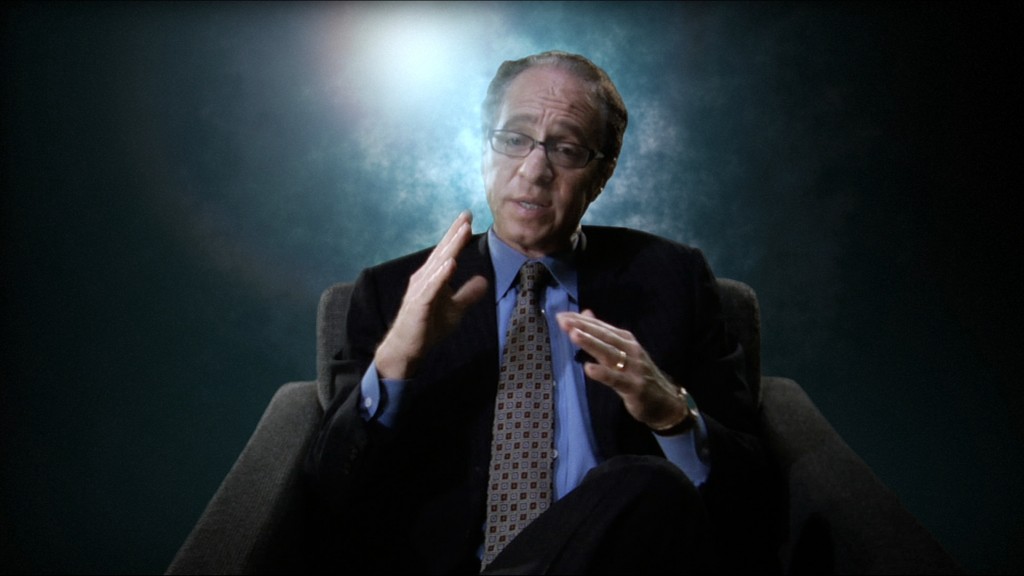
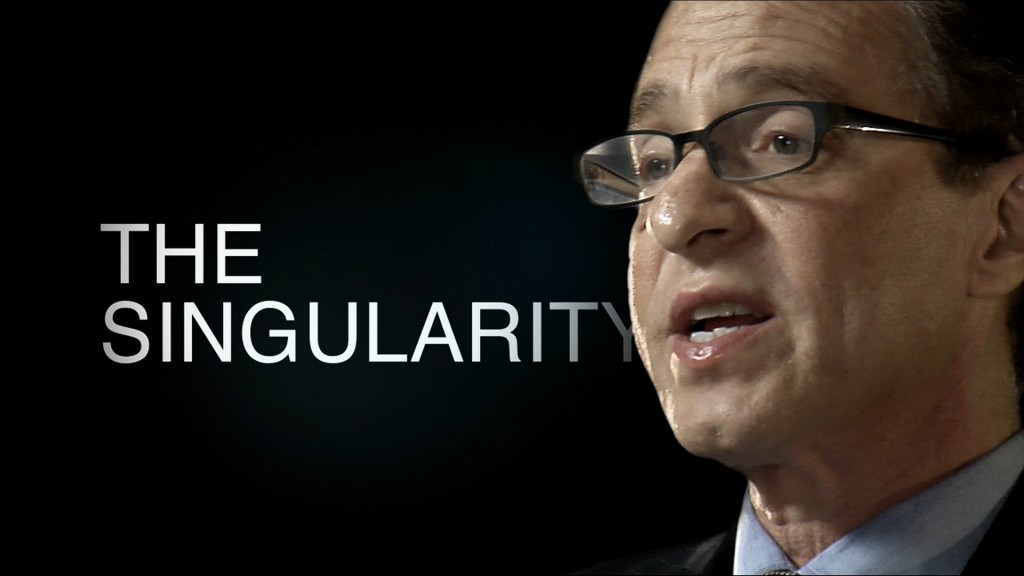
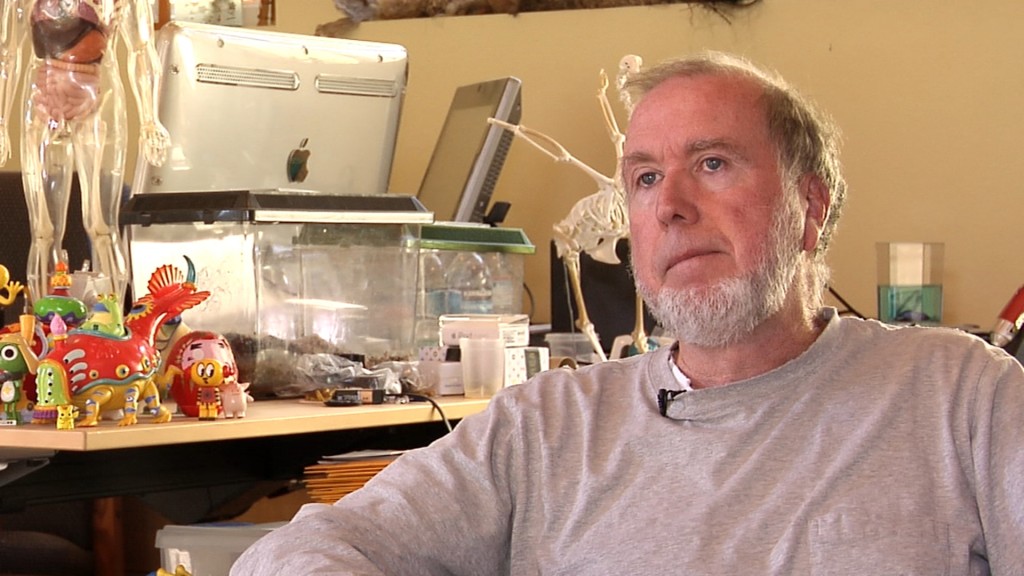

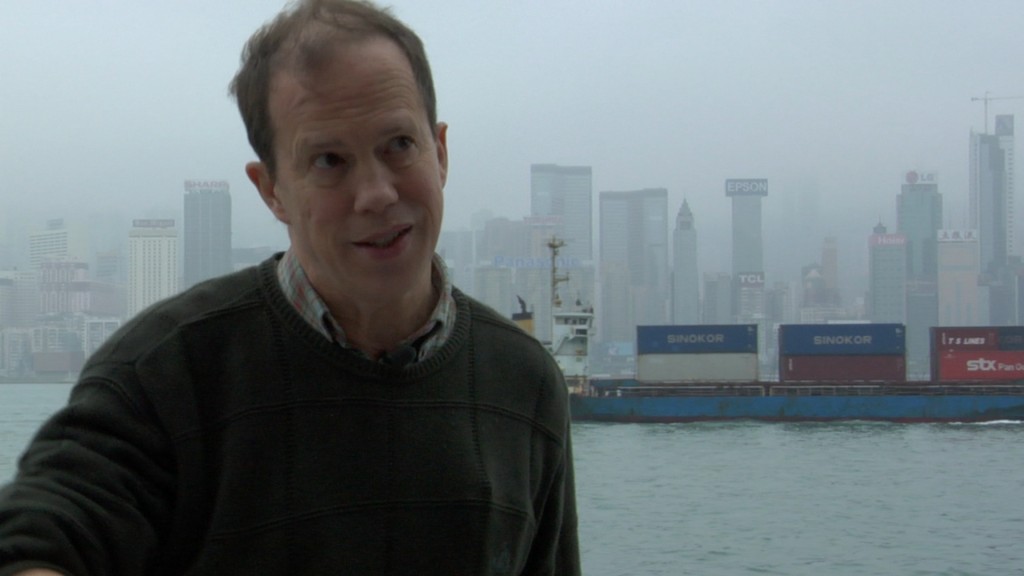
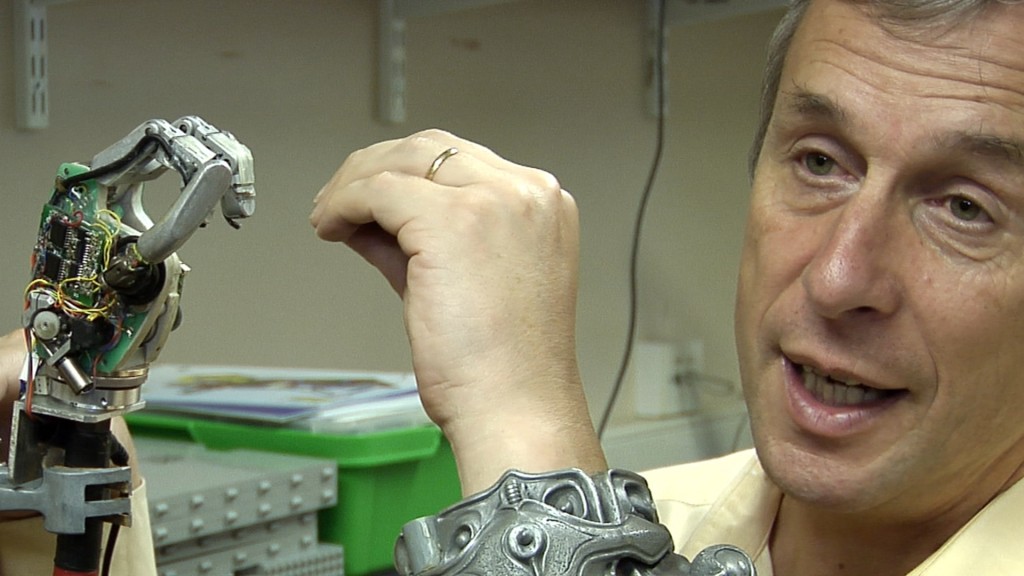

{ 2 comments… read them below or add one }
I think your comments should be made into an addendum to the book. I hope that Mr. Kurtzweil will see your commentary.
Enjoyed reading your commentary of Ray Kurzweil from A to Z. Also your additional examples off the top of your own head — very cool ideas. You and Ray should get together for a chat.